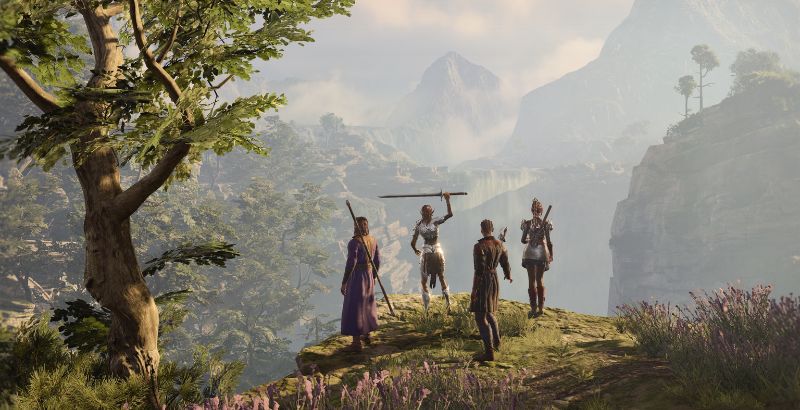Microsoft is in hot water, and it’s not just because of the Federal Trade Commission (FTC). A recent leak has exposed a treasure trove of sensitive information, including Microsoft’s internal discussions about potential Game Pass additions. One of the most eyebrow-raising revelations? Microsoft’s dismissive attitude toward Baldur’s Gate 3, a game that has since become a critical darling.
The $5 Million Gamble Microsoft Didn’t Take
In the leaked email exchanges between Xbox bigwigs Phil Spencer and Sarah Bond, it was revealed that Microsoft had considered adding Baldur’s Gate 3 to its Game Pass lineup. The cost? A mere $5 million. However, the game was brushed off as a “second-run Stadia PC RPG.” This decision is now haunting Microsoft, as the game has evolved into one of the most critically acclaimed third-party titles of this generation.
The Starfield Gap and Other Missed Opportunities
The internal discussions also highlighted a significant gap in the Game Pass lineup due to the delay of Starfield. While Phil Spencer suggested using the Dark Souls trilogy to fill the void, Sarah Bond offered a variety of other options. The email even included price estimates for potential additions, ranging from $30 million for Gotham Knights to a staggering $300 million for Star Wars Jedi: Survivor.
A Lesson in Underestimation
Microsoft’s reluctance to add Baldur’s Gate 3 to Game Pass seems to stem from the game’s initial announcement by Google Stadia. This hesitance appears short-sighted, especially considering the critical success of Larian Studios’ previous title, Destiny: Original Sin 2.
The Bigger Picture: Microsoft’s Financial Muscle
The leak also sheds light on Microsoft’s financial capabilities. While they didn’t opt for the more expensive game options, the fact that they were even on the table shows the tech giant’s enormous financial reserves. It’s a clear indicator that when it comes to services like Game Pass, Sony has a tough competitor.
The leak serves as a cautionary tale for Microsoft and a lesson for all: never underestimate the potential of a game based on its initial platform or past performance. As for Baldur’s Gate 3, it continues to bask in its well-deserved acclaim, proving that sometimes, the underdog does have its day.
